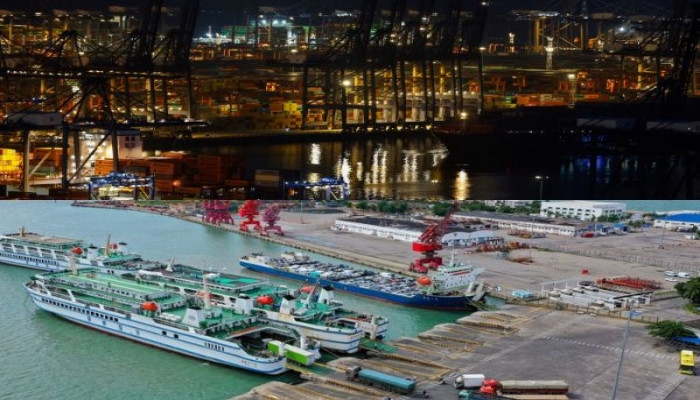China hits back at US with extra port fees on American ships
- In Reports
- 07:14 PM, Oct 10, 2025
- Myind Staff
Starting October 14, ships owned or operated by American companies or individuals, or those built in the United States or flying the U.S. flag, will face extra port fees for each voyage, China’s transport ministry announced.
The ministry said these charges are a direct response to the upcoming U.S. port fees on Chinese ships, calling it a countermeasure.
From the same date, ships built in China or owned or operated by Chinese companies will have to pay a fee at their first port of call in the United States. Analysts say the fees could exceed $1 million for vessels carrying over 10,000 containers, and they may rise year by year until 2028.
Chinese ships will face a flat fee of $80 per net tonnage for each voyage to the U.S.
The U.S. introduced fees on China-linked vessels following an investigation by the U.S. Trade Representative. The move is part of a bigger effort to revive American shipbuilding and curb China’s growing influence in commercial and naval shipping.
"It is clearly discriminatory and severely damages the legitimate interests of China's shipping industry, seriously disrupts the stability of the global supply chain, and seriously undermines the international economic and trade order," the Chinese ministry said.
Over the past twenty years, China has risen to become the world leader in shipbuilding, with its major shipyards handling both commercial and military projects.
Experts say the Chinese fees on U.S. vessels will likely hurt America less than the U.S. fees will hit the large fleet of Chinese ships. Last year, Chinese shipyards built more than 1,000 commercial vessels, while the U.S. built fewer than 10.
For U.S. ships docking at Chinese ports from October 14, the fee will be 400 yuan ($56.13) per net tonne. This will increase to 640 yuan ($89.81) from April 17, 2026, and 880 yuan ($123.52) from April 17, 2027. By April 17, 2028, the fee will reach 1,120 yuan ($157.16) per net tonne.
Tensions between China and the U.S. have been growing since September. Both sides are struggling to move past the temporary trade tariff truce, a 90-day pause that began on August 11 and ends around November 9.
Retaliatory tariffs in the ongoing U.S.-China trade war have sharply cut Chinese imports of American agricultural and energy products.
"There is not much impact likely on agriculture trade, but this step goes to show that China is still irritated with U.S. and they are not going to allow U.S. agricultural imports anytime soon," said one oilseed trader at an international company that sells soybeans to China.
"You don't take such steps if you're trying to resolve matters. Chinese crushers might have to do without U.S. beans this year."
U.S. President Donald Trump and Chinese leader Xi Jinping are expected to meet at the Asia-Pacific Economic Cooperation summit in South Korea later this month.







Comments